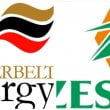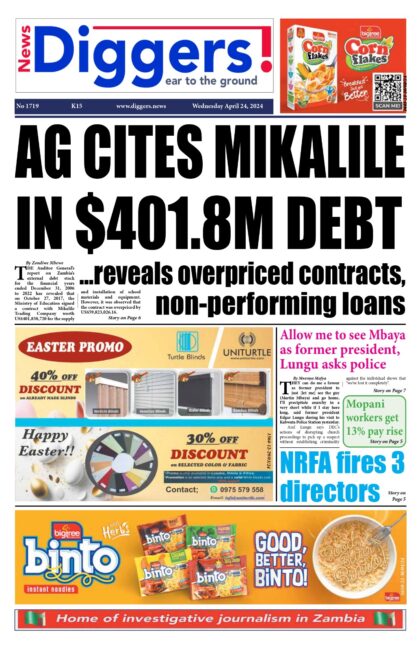ZESCO Limited has disclosed that it made an application to Energy Minister Mathew Nkhuwa to have Copperbelt Energy Corporation (CEC) Plc’s infrastructure declared common carrier because they were avoiding being blocked from supplying Konkola Copper Mine (KCM) with electricity.
And Zesco says they don’t plan to subsidize KCM, but will patiently wait for payments because the mining company remains a “strategic investment”.
Meanwhile, the power utility has insisted that there is no political interference in its operations and is not aware of any political taskforce that was set up to help with Bulk Supply Agreement (BSA) negotiations.
Speaking on Diamond TV’s Costa programme, Sunday, Zesco director of strategy and corporate services Patrick Mwila revealed that the utility applied to Nkhuwa’s office to have CEC’s distribution and transmission lines declared common carrier to avoid being blocked from supplying power to KCM.
“The law does assume that parties will agree, but where there is unreasonableness, then it then allows a party to appeal to the Minister and to the regulator to declare that portion as common carrier. Open access is the policy. We appealed because we have an agreement with somebody and we saw that we are going to be blocked,” Mwila disclosed.
He added that under the current legislation, all monopolistic tendencies that existed in the past had been discouraged.
“What I am saying is that, at the end of the day, we know that when there is open access, it means that even our own customers are subject to competition. If another player, it could be CEC or another one, is saying, ‘I have seen that contract is coming to an end.’ We are not a single player, open access actually disturbs any monopolistic tendencies…So, nobody stops anybody. Now, in the past, maybe in the 80s or 70s, Zesco or CEC would have said, ‘you want to take this power that side,’ so maybe I could block you and say, ‘No, I have an interest in that customer, so I will just make it difficult for you.’ So, all that that law does is that it ensures that there is fair play because you, as the owner, you retain ownership and the idea of that law, if you read that law, which is not in the Electricity Act as well as the Energy Regulation Act, is that it just empowers every player in the electricity supply industry to be able to come to you, just like normal businesses do,” he narrated.
“Let’s say you have got this line, which is going this way, the owner of this distribution line and I know there is clear capacity, ‘can we discuss, we are going to pay you, a commercial rate and, hopefully, if we negotiate all we do is register that agreement with the regulator,’ there is no need for anything bad. Should Costa say that he feels that it may injure some of his business interests, which may not even be there because…if you are in business, then what would happen is that if you already have use for it, no one can force you. But if you’ve no use for that capacity, why keep it because you have to demonstrate that my capacity is taken up and we will see it by the agreements that you have. But here is the alternative, if that law doesn’t come, have you considered the alternative, which will be that if CEC wants to import power from Lunsemfwa or from Maamba or from SAPP and then Zesco will block. If Zesco wants to take power through CEC, CEC will block. Zesco wants to take power through the lines that are held by North-Western [Energy Corporation] and they would block, would that be good for the customer?”
And Mwila observed that KCM remained a critically important and strategic asset to risk loss of power supply.
“Can I take a hit of US $100 million? First of all, let me just assure you that even just the amounts of money that are owed to CEC, the majority of that money belongs to Zesco because you must remember that there was only one supplier of power in this arrangement; we were the underwriter to that agreement in the sense that Zesco supplied to CEC and CEC onward supplied to KCM. Of course, going to the books, it will show that KCM owes CEC and as well CEC owes us whatever they are saying they are owed. So, there is no difference. From that perspective, it means that if KCM hasn’t been paying to CEC and CEC has decided not to pay Zesco. Let me just say this, you cannot supply power from those mines at the moment unless you want to basically bring the mining activities to a halt. So, it’s strategically too critical. So we’ll be patient. In terms of tariff, I can assure you that the tariff we have gotten from KCM is much better that we got from CEC,” Mwila claimed.
However, documents filed in the Lusaka High Court by Zesco in support of its action against CEC included a term sheet, which revealed that the national utility had actually accepted a lower power tariff from KCM for it to start supplying electricity directly to the mine.
KCM will pay a tariff lower than what Zesco and the government advocated for as the end-user tariff for mines, effected in 2017, and which all the parties agreed to.
The Zesco-KCM term sheet as shown in court filings indicated that the former had agreed applicable tariffs for the power supplied to KCM to be US $39.746/kW/month as the capacity tariff, and US $0.0279/kWh as its energy tariff for a term of one year, which brings in security of supply questions for KCM.
The mine’s new tariff compares with about US $44/kW/month capacity fee and US $0.03209/kWh as the energy tariff under the CEC-KCM Power Supply Agreement (PSA.)
This means that the other mines supplied by both Zesco and CEC, and even domestic consumers, will be subsidising KCM because at the time that Zesco is increasing tariffs for its domestic customers, it is also giving cheaper rates to a mining customer.
And Mwila argued that smart metres were a necessity as most of the current prepaid meters will be obsolete by 2024, hence the need to be replaced.
“Even as we are speaking right now, every year on average, we are spending about US $20 million on just the metres that we have. That is normal because one, remember that we have between 80,000 to 100,000 coming onboard in Zesco, new connections every year, then we have what we call faulty metres. Investment in metres is an ongoing exercise and especially in the distribution area. Let it be known also that the current prepaid metres have got a feature where they become obsolete, most of them by the year 2024. They are calling it some TID, there is a certain register, which registers something and this is going to flood or basically it will be overfilled and it will reset,” he said.
Meanwhile, Mwila claimed that he was not aware of any input made by any political taskforce in the negotiations with CEC over the expired Bulk Supply Agreement (BSA), which lapsed on March 31, 2020.
But prior to the SI, Patriotic Front secretary general Davies Mwila announced in early March that the ruling party had appointed a task force to ensure that the negotiations for the BSA between Zesco and CEC were concluded before March 31, 2020.
The PF secretary general, who also unveiled former finance minister Margaret Mwanakatwe as the chairperson of the task force, claimed that the move was made in the interest of protecting the 400 jobs at CEC.
“I am not aware of their input to this, they may have had an input because I mean there is a relationship between the ruling party and the government and they are within their rights to have an interest in that because it’s policy. But let me look at Zesco. As technocrats, we were guided by government that we will need to renegotiate an interim agreement. But that’s guidance, looking at the strategic nature of the Copperbelt, you cannot leave that thing undone. What was agreed on, even as we negotiate a longer-term solution, which we knew would take time because when you are trying to dismantle such agreements, you cannot do it overnight. So, we agreed that we should meet with CEC, agree on a short-term agreement for a year that will allow all parties to work on a better agreement, that was all,” argued Mwila.
“The input in terms of what was done, I will tell you, we were assisted during the talks that we had with CEC, but I didn’t see any political party members there. I just want to assure you that in terms of the agreement and how we negotiated, at the end of the day, it was the Zesco board, Zesco management and the Zesco technocrats, and I can assure you that there was no political interference.”












